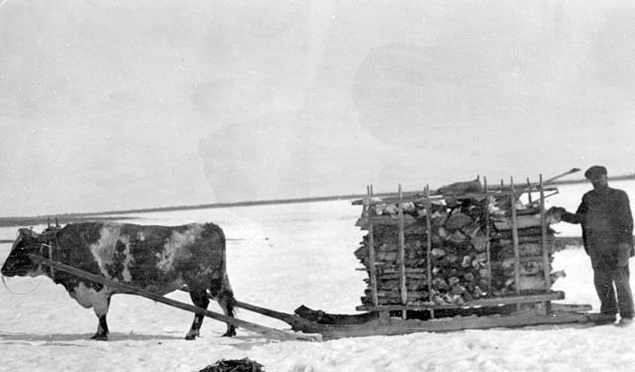Don’t blame the law for these!
So The Legal Genealogist was poking around in old records again last night and came across some unfamiliar words.
 Now that’s not all that unusual, is it? I mean, I’ve been writing blog posts for months and months singling out words that end up in old records where an understanding of the law or the language of the law is necssary to figure out just what the record means.
Now that’s not all that unusual, is it? I mean, I’ve been writing blog posts for months and months singling out words that end up in old records where an understanding of the law or the language of the law is necssary to figure out just what the record means.
But this time, believe it or not, this time Black’s Law Dictionary isn’t going to help one bit.1
The document I was looking at is a pretty straightforward document from a legal point of view. It was part of an estate file from Washington County, Vermont.
Julia A. Richardson of Worcester, Vermont, made a will in which she left all her personal property to her sister Bessie Gould and her land and farm equipment to her nephew Forrest Gray.2 The will was filed for probate on 22 March 1909, and the Probate Court ordered two local citizens to appraise Julia’s property. And that inventory, filed on 10 June 1909, reported that Julia died in possession of:
• “Home farm situated in Worcester and consisting of about sixteen acres of land, more or less, with buildings thereon”
• Poultry
• 1 Buggy
• 1 Sleigh
• 1 Harness
• 1 Harrow
• 1 Stone Boat
• Forks, Hoes, Whiffletrees, Chains & Carpenters tools
• 1 Bed
• 2 Stoves
• 1 Carpet
• 1 Center table
• 6 Chairs
• 1 Extention table
• Crockery
• Cooking utensils
• 3 Mirrors
• Pictures & Books
• $1250 in cash in the bank
• 6-3/4 ton of hay at $10.00 per ton
• 1 Rifle3
Now that all seems pretty ordinar–
Wait a minute. Wait just a minute here.
Okay, so The Legal Genealogist is a city kid. (At least a suburban kid, here in a bedroom community of the Greater New York City Metropolitan Area.)
But stone boat? Whiffletrees? What the–?
See what I mean? You won’t find those terms in Black’s Law Dictionary!
So for the benefit of all the rest of the city slickers out there, a stone boat isn’t made of stone and it’s not a boat. It’s “a flat sledge or drag for transporting heavy articles (as stones)”4 and it looks like this:5

And a whiffletree doesn’t have anything to do with whiffleball — or getting a whiff of something. It’s “the pivoted horizontal crossbar to which the harness traces of a draft animal are attached and which is in turn attached to a vehicle or an implement. Also called singletree, swingletree; also called regionally whippletree.”6
What it looks like varies depending on how many animals are getting hitched together, but for three it’d look like this:7

And the term is really a regional variant:
Whiffletree, a term primarily used in the northeast United States, is derived from the older term whippletree, which is used in the Upper Northern states farther to the west. The fact that whiffletree, the newer term, is used in the Northeast, the older dialect area, illustrates the process of linguistic change. Even as the older word whippletree was spreading westward into a new dialect area, it was evolving into something different — whiffletree — in the area where it originated, as if the older dialect area were somehow trying to keep a step ahead.8
So there you have it.
Sigh.
Not nearly as much fun as my imagination was suggesting, as in sailing a stone boat down legal backwaters or climbing to the top of a whiffletree…
SOURCES
- Trust me on this one. I looked the terms up. They’re not in there. Oh, go ahead and check for yourself if you’d like. You do have your own copy of Black’s Law Dictionary on CD, right? Right??? ↩
- Washington County, Vermont, Probate Estate File, Julia A. Richardson, Box 03, file no. 3, 22 Mar 1909; District Probate Court Clerk, Montpelier, Vermont; digital images, “Vermont, Washington County, Probate Estate Files, 1862-1915,” FamilySearch (https://familysearch.org : accessed 11 Jul 2013). ↩
- Ibid., inventory, 10 June 1909. ↩
- Merriam-Webster Online Dictionary (http://www.m-w.com : accessed 11 Jul 2013), “stone boat.” ↩
- Image: Wikimedia Commons, “Ox-drawn sledge in the NWT,” 1921 photograph. ↩
- The Free Dictionary (http://www.thefreedictionary.com : accessed 11 Jul 2013), “whiffletree.” ↩
- Image: Richard New Forest, via Wikimedia Commons, Creative Commons 3.0 license. ↩
- Ibid., citing The American Heritage® Dictionary of the English Language, Fourth Edition (Boston : Houghton Mifflin, 2000). ↩



Ah, Judy, but in our lives we have to take the mundane with the fun. If it were all fun we wouldn’t have anything to complain about!?
We’d still have death, taxes and Congress to complain about!!!
When I saw the word whiffletree, I thought it was probably the same thing as a swingletree. I’m a city girl too, but married to a country boy. His mother’s maiden name is SWINGLE so you can imagine all the swingletree references I get in a search for that surname!
And I’d never seen the term swingletree until I was researching this, Linda! But yeah… that would really mess up surname searches, wouldn’t?
Ahh – always such a relief to read your post to find I haven’t been breaking a law.
The only laws involved here, I think, are the laws of gravity and inertia, Wendy!
Oh the things we read on inventories! I love unusual words. I actually knew what a stone boat was, but not a whiffletree… We’ll all be better at crosswords and scrabble-type games now! Cheers.
You’re a big one up on me, Celia. I’d never even heard the term “stone boat” before.
My husband knew right away what a stone boat was. He wasn’t sure about the whiffletree but when I read the definition he said “That’s it”! I have no idea how he knew that – LOL! By the way, Julia had a very nice estate. I always think of that familiar saying “poor as church mice”. Based on my family the church mice had money.
See, the things you find out about a spouse this way… As for Julia and any comparison to my family? Julia had a will. And an estate to probate. Mine rarely left anything other than footprints…
Having been born in Northern Minnesota, I knew what a stone boat was, but you had me on whiffletree. As I always say, I learned something new everyday.
I didn’t know either of those terms, Gus, so I learned too!
I used a stone boat while growing up in New Hampshire; whiffletree was new, since our “draught animals” were tractors. However, I’ve heard the term “own cousin” among some of the relatives. Are you familiar with that usage? It may be localized to the Stowe, Vermont area since all the relatives that used it were from there.
Thanks.
David Adams
Nope, sure haven’t come across that one, David! What’s the usage?
Your posts are just delightful. Always unusual and instructive and witty. I wonder if this is where the name Doubletree comes . . . you know, that chain of hotels? After all, singletree . . . doubletree?
Did you never in your childhood sing the song?
Oh, the old grey mare she
***** on the wiffletree,
***** on the wiffletree,
***** on the wiffletree,
The old grey mare she
***** on the wiffletree,
Many long years ago.
(Next verse …)
Wiffletree = wippletree.
***** = pffffff, or shat upon.
We gave up after the “ain’t what she used to be” verse. 🙂